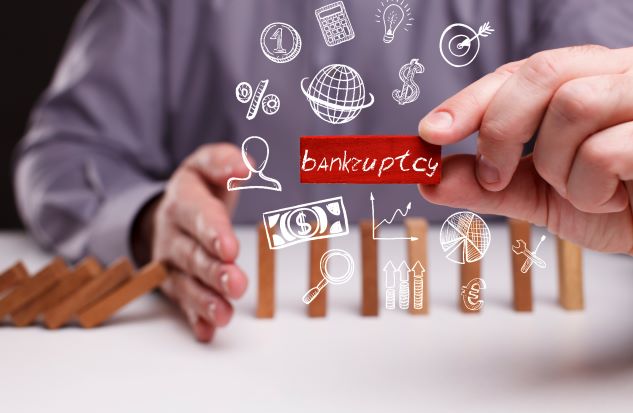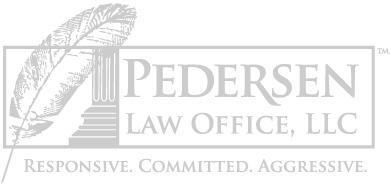Difference Between Chapter 7 Bankruptcy and Chapter 13 Bankruptcy
Mar 22, 2022

CHAPTER 7 BANKRUPTCY
Debts
A Chapter 7 Bankruptcy can eliminate unsecured debts, such as medical bills and credit card bills. The bankruptcy court allows you to choose how to handle your secured debts, such as a home or vehicle loan. You can keep the asset and the debt, or you can surrender the asset and walk away from the debt. In order to keep your home or auto, you will need to be current on the loan and continue paying on the loan. Money owed for taxes or to government agencies are categorized as priority debts. The majority of priority debts can not be discharged in a Chapter 7 Bankruptcy.
Assets
All the assets you own are listed and protected by using the exemptions provided in your state. In Wisconsin there are exemptions for homestead, vehicles, household goods, bank accounts and retirement accounts just to name a few. Most people can exempt everything they own and are able to keep all of their assets. If there is any property you are not able to exempt, the Trustee can sell the nonexempt property and distribute the proceeds to your creditors.
Income
There are income limits for a Chapter 7 Bankruptcy determined by the state you live in and your household size. In order to file a Chapter 7 Bankruptcy your household income must pass the means test. Your income over the last six months is used to get a yearly calculation. The income limits are updated annually. To find the most recent income limits you can check here. If your income is higher than the limits, you may still be able to qualify for a Chapter 7 Bankruptcy; it just becomes more complex. You may be able to deduct child support, medical expenses, actual taxes, life insurance policies, car payments and certain other debts the court finds reasonable. In a Chapter 7 Bankruptcy you are also required to account for your monthly income and show the court the lack of extra income to pay anything more than your necessary expenses.
Timeline of Discharge
A Chapter 7 Bankruptcy is typically only open for 4 to 5 months. Once completed, you will receive a Discharge Order eliminating all qualified debts.
CHAPTER 13 BANKRUPTCY
Debts
A Chapter 13 Bankruptcy is a repayment of your debts over a three-to-five-year plan. A Chapter 13 Bankruptcy is often used to stop foreclosure on a home or stop repossession of a vehicle. The amount you are behind on your home or auto loan gets paid back while also taking care of your unsecured debts, such as medical and credit card bills. Often unsecured debts can be discharged without paying any or very little payment towards them. The amount paid to your unsecured debts is determined by your disposable income and the amount of unexempted property you own. Property taxes, income taxes and non-support divorce debt can also be included in your Chapter 13 repayment plan.
Assets
Like in a Chapter 7 Bankruptcy, you are required to list all of your assets and use the exemptions allowed to protect them. However, if you are not able to protect all of your assets you are still able to keep them; you will just need to pay for them. The dollar amount of property you are not able to exempt is the minimum you will need to pay towards your unsecured debts, such as medical bills and credit cards.
Income
If your household income is too high to qualify for a Chapter 7 Bankruptcy, a Chapter 13 Bankruptcy can still provide the debt relief you need. There is no income limit in a Chapter 13 Bankruptcy. The amount of disposable income you have will determine the amount you pay towards your unsecured debts such as medical and credit card debt. In a Chapter 13 Bankruptcy you need to account for your income and show you have enough income to afford your Chapter 13 plan payment and your necessary expenses.
Timeline for Discharge
The maximum amount of time for a Chapter 13 Bankruptcy is 5 years. If your income qualifies for a Chapter 7 Bankruptcy, but you need the additional benefits of a Chapter 13, you can complete your Chapter 13 Bankruptcy in 3 years. If you need more time or want to have a lower monthly payment you can extend your Chapter 13 plan to 5 years. After successfully completing your Chapter 13 repayment plan you will receive a discharge of all qualified debts, even if they did not receive payment or were repaid at a reduced amount.
FREE CONSULTS
Chapter 7 Bankruptcy and Chapter 13 Bankruptcy are both great debt relief options. A Chapter 13 Bankruptcy is often used to save a home from foreclosure or help manage and eliminate debt when your income is too high to qualify for a Chapter 7 Bankruptcy. It can provide you more time to pay back debts that are not dischargeable in Chapter 7 or provide debt relief when you have unexempt property. Having an experienced attorney help review your specific circumstances and provide a detailed explanation of your options is important. At Pedersen Law Office, LLC we provide free consultations to help you figure out the best debt relief option for you and help you through the entire process. Our law office serves the communities of Appleton, Neenah, Menasha, Oshkosh, Green Bay and their surrounding areas.
